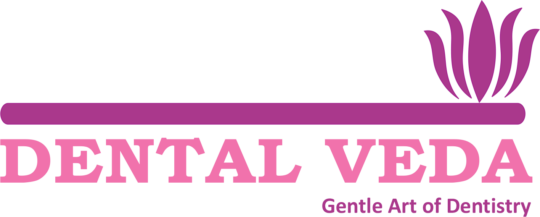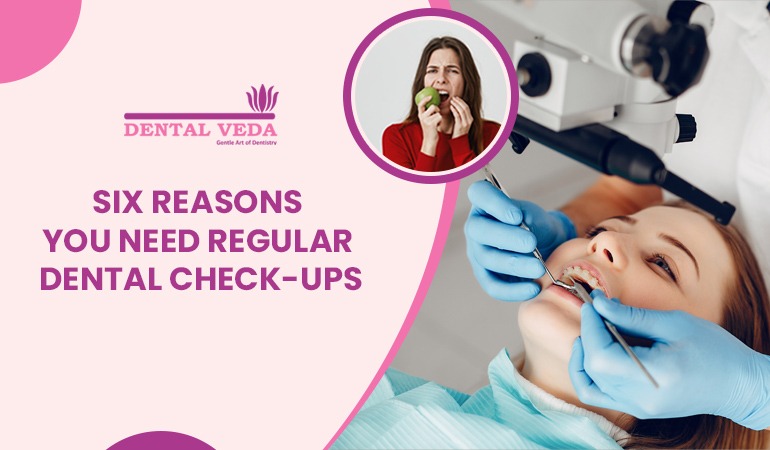Refusal to go to a dentist can cost you more than his actual fees.
A pending dental appointment can bring the feeling of nervousness and anxiety. Going to the dentist is something that finds the last place in your monthly checklist.
Moreover, you may find a thousand reasons to skip your dental appointment. However, you don’t know that you are inviting trouble for your teeth.
Regular dental checkup procedure are necessary to keep your dental health in check. A regular dental check-up helps in keeping your teeth and gums healthy. Ideally, you should visit the dentist at least once every six months.
How does a dentist undertake your examination when you visit him?
A dental visit consists primarily of two parts. As part of a routine dental checkup, a dentist will examine every part of your tooth. Following that, your dentist might take x-rays.
Then, if your teeth require it, you can have a tooth cleaning procedure performed. In case of need, your dentist will provide a follow-up plan and schedule future appointments.
Basic components of every dental visit consist of:
-
Reviewing and updating your dental history
-
Blood pressure screening
-
Examination of gums and teeth to check cavities
-
Full mouth professional cleaning called oral prophylaxis
-
Radiographic examination in case of serious dental issues
Therefore, you should have regular dental checkups with your dentist.
Additionally, there can be certain other reasons that make it vital for you to visit your dentist. Here are a couple of reasons that will make you go for regular dental checkups.
To detect oral cancer
Oral cancer is considered as an extremely serious disease that manifests in various ways. Oral cancer includes cancer of the mouth and back of the throat. Cancer may develop on the tongue, the tissue lining of the mouths and gums, and the area of the throat.
The risk of this cancer most often occurs in people over the age of 40. Oral cancer can quickly progress without showing any signs and symptoms. However, you may develop certain symptoms, including:
-
Sore, irritation, or infection in your mouth or throat
-
White or red patch in your mouth
-
Difficulty chewing, swallowing or speaking
-
Numbness in your tongue
Why is it important to diagnose oral cancer?
The goal of oral cancer diagnosis is its early detection as it can spread quickly. Most dentists perform the test during regular dental checkups. Your dentist can check your face, neck, lips, and entire mouth for possible signs of cancer.
To detect plaque and cavities
Although, brushing and flossing help in keeping your teeth clean but, they may not reach each and every area of your mouth.
Regular dental cleaning prevents tartar from eroding teeth or creating holes. Once the holes are created, there are more chances of cavity formation. When decay has already penetrated a tooth, there may be some aching. Decay may cause signs and symptoms such as:
-
Toothache or spontaneous pain that occurs without a known reason
-
Visible holes or pits in your teeth
-
Brown, black or white staining on the surface of the teeth
-
Pain when you bite down
Therefore, if a cavity occurs in your mouth, you should go for regular dental checkups.
To detect gum disease
Regularly visiting your dentist can keep gum disease at bay. Plaque and tartar buildup can erode the mouth gum tissues. It happens when tartar buildup causes an infection where the gum is connected to your tooth. The infection is called gingivitis, and as it progresses, the gum tissues may break down.
Plaque is considered as a primary cause of gum disease. However, other factors like hormonal changes, poor oral hygiene, and smoking can also aggravate the chances of developing gum disease. Symptoms of gum disease may appear subtle in the beginning, but it may take other forms, including:
-
Gums that bleed during and after brushing
-
Red and swollen gums
-
Formation of the deep pockets between your gums and teeth
-
Persistent bad breath for no reason
-
Loose or shifting teeth
Hence, only a dentist or periodontist can determine the cause and severity of gum disease. Therefore, going for a regular dental checkup is vital to protect you from catching this disease. During a routine checkup, a dentist will make sure that your gums are firm.
To treat bad breath
Not brushing your teeth daily can invite bad breath as the food particles can remain in your mouth. This can cause bad breath. Moreover, inflammation of the gum from poor dental hygiene can also cause bad breath.
Not only morning breath or eating too many onions can cause chronic bad breath. It can occur due to a condition called halitosis. Halitosis is often caused by poor oral hygiene habits. Halitosis may be caused by certain foods, improper cleaning of dentures, dry mouth, or periodontal disease.
Regularly visiting your dentist is essential to avoid bad breath and treat oral health problems. Your dentist will do an oral exam and professional teeth cleaning to treat periodontal disease or other issues that are causing bad breath.
To keep a check on bad oral habits
Your oral hygiene habits can lead to healthy teeth. We may not give it a thought, but our daily habits are causing great damage to our teeth. We should watch out for certain habits, including nail-biting, ice chewing, jaw clenching, and eating too many sweets. These habits can lead to tooth damage and infection.
However, regular visits to your dentist keep these habits in check. During your dental consult, your dentist will point out the consequences and ways in which these habits can harm your oral health. Furthermore, your dentist can assist you in correcting these habits and establishing a better foundation for dental and oral health.
To check the head, neck, and lymph node
Your dentist will check your head, neck, and lymph nodes for any swelling, lumps, or other normalities. Swollen lymph nodes may not hurt all the time. However, it could be a sign of cancer or other diseases that require immediate attention.
When you go for dental checkups, a dentist will take only a few minutes to examine the abnormalities in the neck and lymph nodes. If they find any problem, they can refer you to some dedicated specialist in the field.
Dental Veda: Best Dentist in Gurgaon
At Dental Veda, the best dentist in Gurgaon offer top-quality dental care to all patients. Our dentists provides you with the various types of dental examination procedures that specifically cater to your dental needs.
Book an appointment today and get your brightening smiles back!
What is a general dental examination?
A general dental examination is a complete examination of your teeth, gums, and mouth. Your dentist will check the dental problems like gum disease, teeth infections, or other dental problems in the general dental examination. How long does a dental examination take?
Dental examinations usually take 40 minutes. A dentist will first ask you questions related to your oral health. After that, he may suggest an oral examination and ask for an X-ray if the underlying condition is severe. What is dental recare?
In the world of dental hygiene, a recare system refers to routine follow-up with the patients. A recare system is considered as an essential part of dental practice. It increases patient retention and assists in detecting oral disease.


